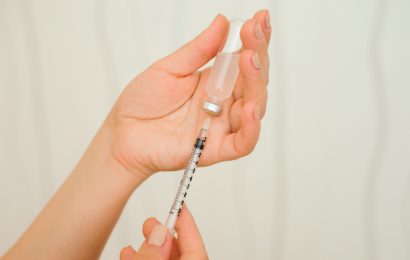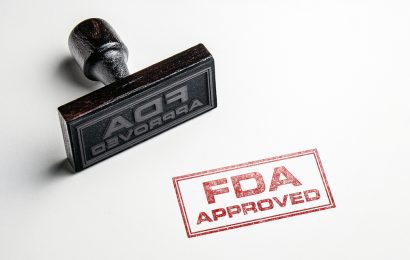The U.S. Food and Drug Administration (FDA) has recently approved alirocumab (brand name Praluent) and evolocumab (Repatha), two injectable medicines from a new class of cholesterol-lowering drugs known as proprotein convertase subtilisin/kexin type 9, or PCSK9, inhibitors. A high level of LDL, or “bad,” cholesterol is linked to heart disease, the number one cause of death for Americans.
In the liver, a protein called PCSK9 works to decrease the number of receptors that remove LDL cholesterol from the blood. PCSK9 inhibitors are antibodies that block the ability of this protein to work, increasing the number of receptors that are available to rid the blood of LDL cholesterol, thereby reducing LDL levels. The drugs do not appear to cause the muscle problems that statins, another class of cholesterol-lowering medicines, sometimes can.
Praluent, marketed by Sanofi-Aventis and Regeneron Pharmaceuticals, is approved for use, in addition to diet and the maximum tolerated statin dose, in adults with a condition called heterozygous familial hypercholesterolemia (HeFH) or in those with atherosclerotic heart disease such as heart attacks or strokes who require additional lowering of LDL cholesterol. The medicine, which is available in either a single-dose prefilled injection pen or in a single-dose prefilled syringe, is injected at a dose of either 75 milligrams or 150 milligrams once every two weeks. (Other injectable medicines should not be given at the same injection site.)
The safety and effectiveness of Praluent were established in five trials involving 2,476 participants, which showed that the medicine lowered LDL cholesterol by 36% to 59% compared to placebo (inactive treatment).
Repatha, manufactured by Amgen Pharmaceuticals, is also approved for use, in addition to diet and the maximum tolerated statin dose, in adults with HeFH or in those with atherosclerotic heart disease such as heart attacks or strokes who require additional lowering of LDL cholesterol. This medicine is available in either a single-dose prefilled injection pen or in a single-dose prefilled syringe and is injected at a dose of 140 milligrams once every two weeks or at a dose of 420 milligrams once a month. (Other injectable medicines should not be given at the same injection site.)
The safety and effectiveness of Repatha were established with one 52-week trial and eight 12-week trials, which showed that the medicine lowered LDL cholesterol by roughly 60% compared to placebo.
“[These medicines] provide another treatment option for patients with HeFH or with known cardiovascular disease who have not been able to lower their LDL cholesterol enough on statins,” noted John Jenkins, MD, director of the Office of New Drugs, Center for Drug Evaluation and Research.
According to the respective manufacturers, the wholesale price of a year of treatment with Praluent is estimated to be roughly $14,560, and the wholesale price of a year of treatment with Repatha is approximately $14,100. Financial support is available from the manufacturers for those who qualify to help with the cost of these medicines.
The most commonly reported side effects of Praluent include itching, swelling, pain or bruising where the injection is given, nasopharyngitis (inflammation of the nose and pharynx), and flu. The most commonly reported side effects of Repatha include nasopharyngitis, upper respiratory tract infection, flu, back pain, and injection site reactions such as redness, pain, or bruising.
Trials to evaluate the effectiveness of these medicines at reducing cardiovascular risk are ongoing.
For more information about Praluent, see the press release on the FDA website or the Praluent website. And to learn more about Repatha, see the press release on the FDA website or visit the Repatha website.





